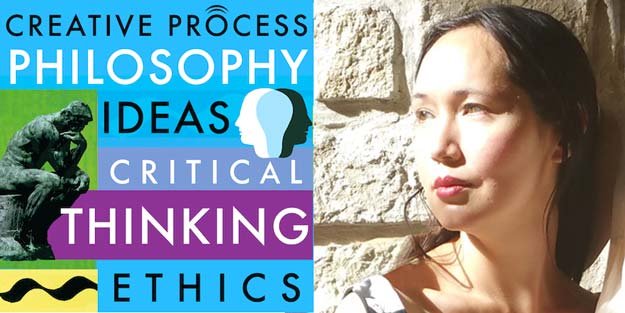How do we navigate ambiguity and uncertainty? Moving beyond linear thinking into instinct and intuition, we might discover other sources within ourselves that lie beyond the boundaries of science and reason.
Rupert Sheldrake is a biologist and author best known for his hypothesis of morphic resonance. His many books include The Science Delusion, The Presence of the Past, and Ways to Go Beyond and Why They Work. At Cambridge University, Dr. Sheldrake worked in developmental biology as a fellow of Clare College. From 2005 to 2010, he was director of the Perrott Warrick Project for research on unexplained human and animal abilities, funded by Trinity College Cambridge. He was among the top 100 global thought leaders for 2013, as ranked by the Duttweiler Institute.
RUPERT SHELDRAKE
All artists are influenced by other artists and by things in the collective culture, and I think that morphic resonance as collective memory would say that all of us draw unconsciously as well as consciously on a collective memory and all animals draw on a collective memory of their kind as well. We don't know where it comes from, but there's true creativity involved in evolution, both human and natural.
*
The idea that the laws of nature are fixed is taken for granted by almost all scientists and within physics, within cosmology, it leads to an enormous realm of speculation, which I think is totally unnecessary. We're assuming the laws of nature are fixed. Most of science assumes this, but is it really so in an evolving universe? Why shouldn't the laws evolve? And if we think about that, then we realize that actually, the whole idea of a law of nature is a metaphor. It's based on human laws. I mean, after all, dogs and cats don't obey laws. And in tribes, they don't even have laws. They have customs. So it's only in civilized societies that you have laws. And then if we think through that metaphor, then actually the laws do change.
*
I first went to India in 1968, um, I was on my way to Malaysia to work at the University of Malaya on tropical rainforest plants. I had a grant from the Royal Society to do this, but I traveled through India and Sri Lanka on the way to Malaysia, and then after my time at the University of Malaya, I traveled back via Thailand to Cambodia and Laos, so I saw something of Southeast Asia. And was immensely impressed by exposure to diverse cultures and spiritual practices. Here were these cultures completely unlike anything I'd been brought up with, with highly intelligent people, very sophisticated world views, and spiritual practices like meditation, yoga, and other physical systems, which I thought were enormously important and helpful. So it literally expanded my mind as the possibilities of human culture, knowledge, and experience, and helped jolt me out of a narrowly mechanistic framework of thinking within which I'd been brought up. And there's now been a lot of scientific studies of spiritual practices that show that in general, they make people happier, healthier, and live longer.
*
We all live in an electronic smog surrounded by Wi-Fi devices. And since our cells are electromagnetic and our brain activity is electromagnetic, it's hard to believe that this does not affect any of us. We just don't know to what extent these communications are responsible for the decline in insect life or to what extent this plays in increasing rates of cancer or mental disturbances, or children born with autism. And so all these things could be influenced by our devices, but we don't know.
*
It's important to know about our own cultures and something about world history. I think it's important to be aware of traditions and including the religious traditions of our cultures, because they help to integrate and connect us. To abandon them means we're disintegrated and disconnected. Obviously, everyone needs to know about science and technology because they're such an important part of the modern world, but I would begin scientific courses by making it clear what are open questions and what are simply assumptions. I think it's important to be introduced to the culture, literature, music, and other forms of art and architecture, and the great buildings. And of course, learning to sing and to dance and to celebrate and the elements of basic sports. All these things are very important too. It's not just a matter of sitting looking at screens most of the time. So I think these are some of the things which are important. And I think that learning things by heart is important too, like poetry or prayers.
This interview was conducted by Mia Funk and Donna Sanders with the participation of collaborating universities and students. Associate Interviews Producers on this episode were Katie Foster and Donna Sanders. The Creative Process is produced by Mia Funk. Additional production support by Sophie Garnier.
Mia Funk is an artist, interviewer and founder of The Creative Process & One Planet Podcast (Conversations about Climate Change & Environmental Solutions).















































































